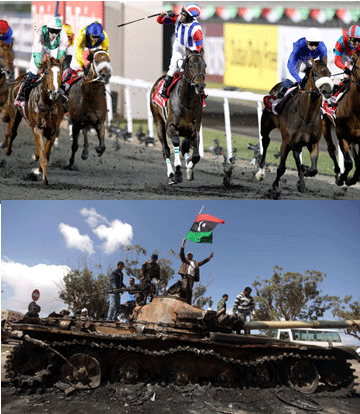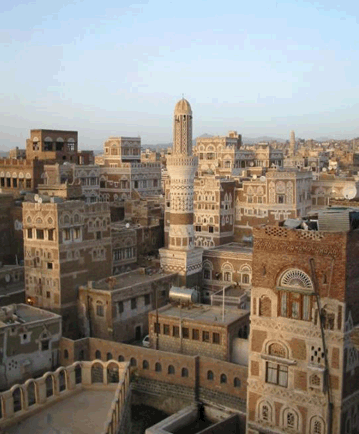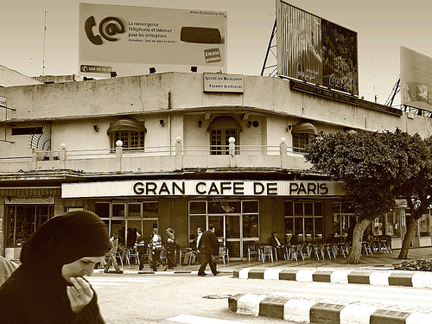
Top: Victorie Pisa from Japan, ridden by Mirco Demuro, middle, crosses the finish line of $ 10,000,000 Dubai World Cup race, the world’s richest horse race, followed by 2nd place Transcend , right, from Japan and 3rd place Monterosso from Great Britain, 2nd right. (The Associated Press); bottom:Libyan rebels on top of a captured tank
As I write this, the media are reporting major advances of the Libyan resistance to Qaddafi, supported in large part by the surgical air strikes of the U.S. and NATO aircraft. Qaddafi has bunkered down, vowing to fight until his last drop of blood, but as the race to Tripoli proceeds, more and more defections from his military are inevitable. It is hard to predict when this will end. In general I think most ruthless dictators are cowards at heart, which is why they need such massive security to perpetuate their narcissistic hold on power. But Qaddafi is deluded enough to go down with guns blazing, like Errol Flynn in Custer’s Last Stand.

Debate over the wisdom of U.S. involvement in the Libyan no-fly-plus zone has reached a level of feverish political overtones. Obama’s opponents, those lock-step GOP stalwarts who never challenged Bush when we foolishly entered into a ground war in Iraq, now seem concerned about the costs of tomahawk missiles (I suspect those senators with large arms manufacturers in their home states are biting their tongues as they speak). Winging it, a la Bush, is the American way in their mind and damn what any other civilized nation thinks. Actually forging a coalition with U.N. and some Arab country backing is heralded as weakness. Much of the debate swirling between the talking security expert heads is really an end-around around the end-game criticism. Continue reading Racing from Dubai to Tripoli →








